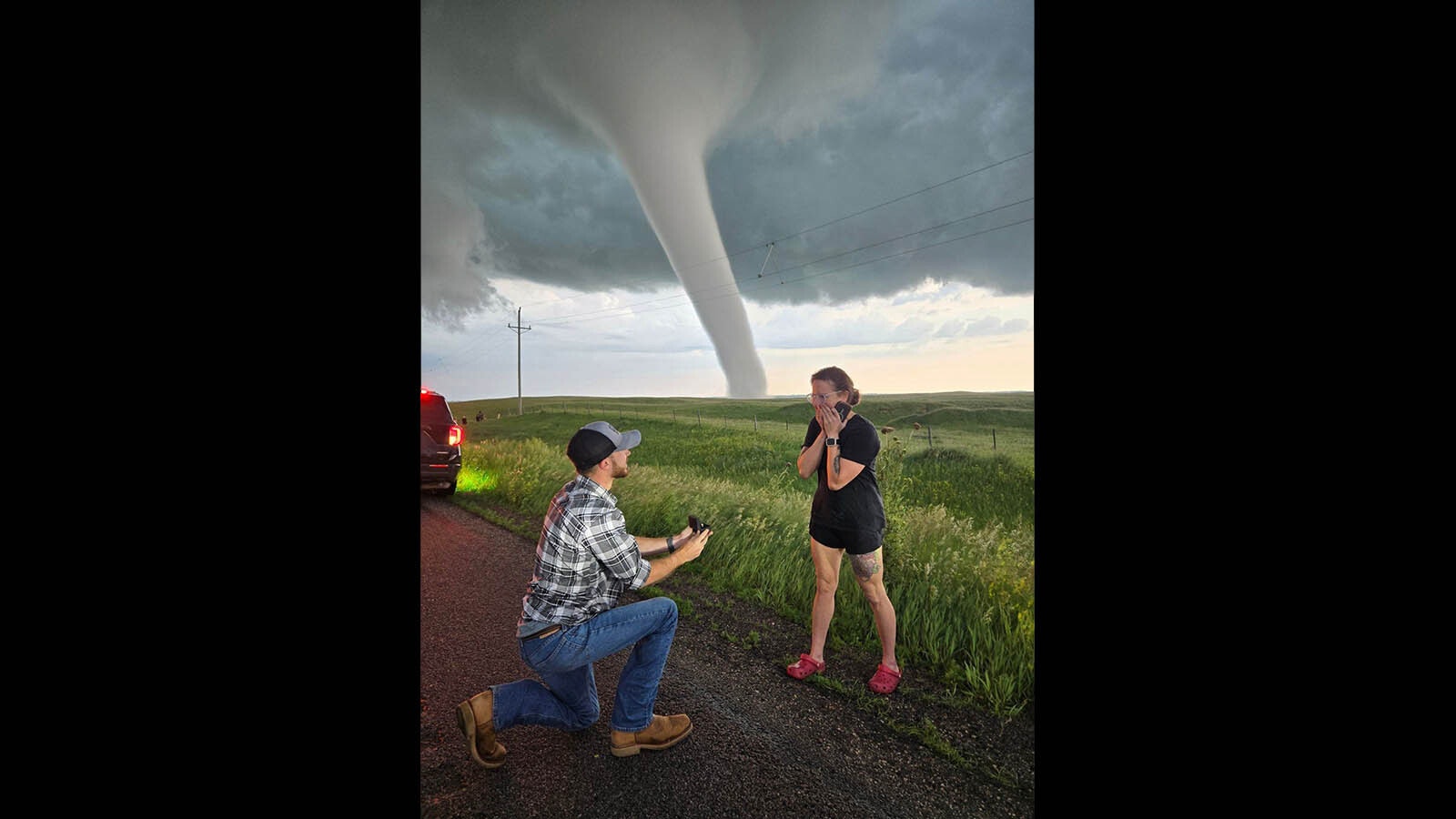Patricia Seyersdahl, a lifelong Green River resident, wants her city council to ban plastic grocery bags in the southwest Wyoming town.
Zachary Taylor, director of the American Recyclable Plastic Bag Alliance (ARPBA), said similar bans have had counterproductive consequences in other communities where they’ve been enacted.
First Step
The Green River Council had little to say about Seyerdahl’s proposal, but she told Cowboy State Daily that she’s going to continue to push for the measure.
“This is just the start. This is my first meeting. I plan to go back and see if we can do something about it,” Seyerdahl said.
The retired school lunchroom and retail worker said she’s not an environmental activist, and this was the first time she’s ever pursued something like a bag ban. But she believes it an easy way to have a positive benefit on the environment.
“I’m just a concerned citizen,” Seyerdahl said. “Everybody complains about pollution, but nobody does anything about it.”
Multiple Uses
Jackson Hole implemented a plastic grocery bag ban in 2019, and in January 2020, the Laramie City Council approved a resolution to shrink and regulate retail-use plastic waste within the city.
Many other cities in other states have enacted such bans.
Nine municipalities in Colorado have banned plastic bags, and seven place taxes on them. Dozens of California communities have banned them.
Not A Great Track Record
Taylor with the ARPBA, which represents the U.S. plastic bag manufacturing and recycling industry, said the organization was surprised to see a plastic bag ban pursued in a small, rural town like Green River.
He said the plastics industry is concerned about sustainability and encourages people to recycle, but bag bans can actually undermine those goals.
According to a 2017 study by Récyc Quebec, 77% of bags get reused within the home, Taylor said.. This includes using them in various household tasks like picking up pet waste, bundling up used kitty litter and lining bathroom wastebaskets.
“So this study found that most of those bags in the landfill are arriving contaminated, which is to say they were reused for something,” Taylor explained. “When you reuse a plastic bag, you’re avoiding purchasing alternative plastic products like doggy bags that might be thicker.
“And it’s still going to the landfill.”
Small Fraction
It’s also not a large amount of plastic waste, Taylor said.
According to EPA data on what’s in municipal solid waste — what’s going into landfills — plastic bags account for 0.3% of the total volume. That’s all plastic bags combined, not just grocery bags.
“That’s everything from your Cheetos bag that you’re munching on watching football on Saturdays and Sundays to your grocery bags to your trash bags to your Ziplock bags — any plastic bag or sack,” Taylor said.
That means plastic grocery bags are a small fraction of a small fraction of a percent of the waste in landfills.
Increased Food Costs
Reusable bags that people are encouraged to use instead of plastic grocery bags are often themselves made from plastic.
“They’re thicker, so it’s more plastic than the product they’re replacing and they can’t be recycled,” Taylor said.
Reusing these bags without washing them is a health hazard. More energy is used to wash a bag in warm water, especially in a washing machine, than it takes to make a new bag.
Paper bags take more energy to produce than plastic ones, and like reusable bags they cost stores more to stock.
Taylor said those costs are substantial and get passed onto grocery shoppers. At a time of rising food prices, shoppers end up with higher grocery bills.
Voluntary Options
Taylor said the industry encourages people to recycle their plastic bags, if they’re not being reused.
A more sustainable approach to sustainability than banning bags is store take-back programs. Customers just return with the bags they haven’t reused and the store recycles them.
Green River Mayor Pete Rust said he talked to Seyersdahl, but he’s concerned that a heavy-handed approach like a ban isn’t the best way to address the issue.
“In Wyoming, we’re pretty conservative and concerned with too much government,” Rust said, adding that he wasn’t speaking for the whole council.
He thinks a better way to address plastic bag waste is trying that education piece first. If people understand the environmental impact of plastic bags and are asked to recycle them, they might be more willing to participate.
Rust said working with businesses for voluntary recycling programs might be another avenue to explore.
“Generally, it’s much better accepted by people if you don’t force it upon them,” Rust said.
Skeptical
Seyersdahl said she’s skeptical of such approaches.
“I would love people to do it on their own, but I have reservations about people actually doing it,” she said. “You know, we all can use reusable bags now, but when I go to the grocery store, I really don’t see that many people using them.”





